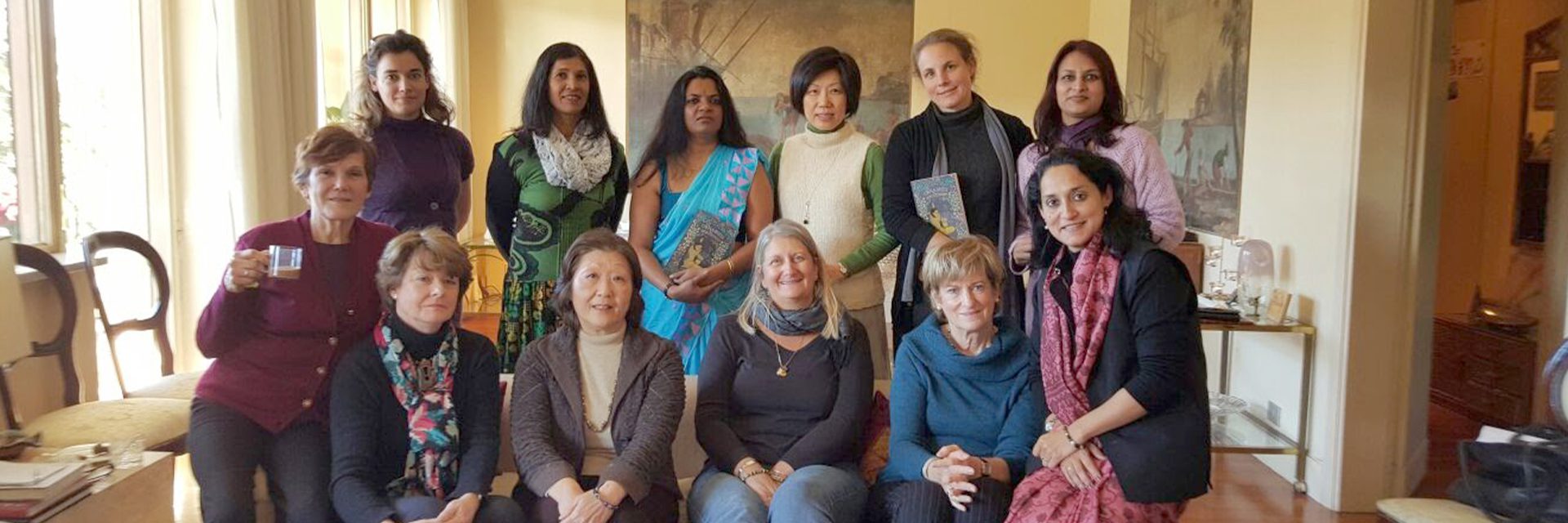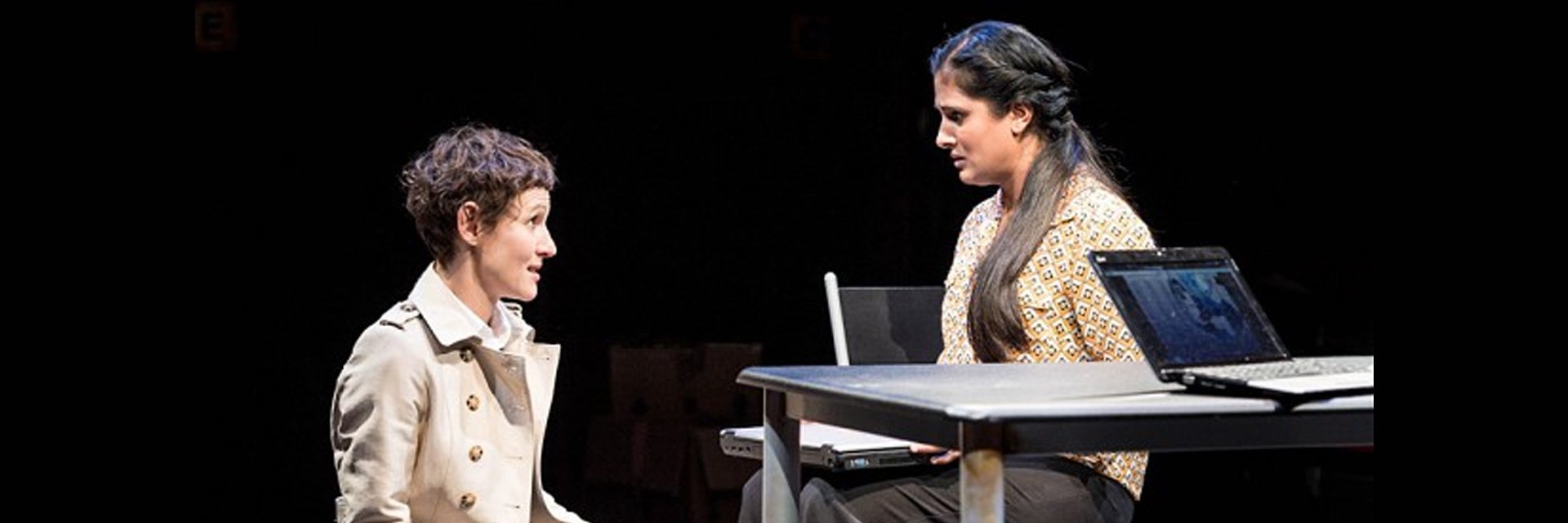(May 6, 2022) Putting a fourteen-year career as a bureaucrat and a stint at the United Nations behind her, former IRS officer Sumedha Verma Ojha dedicated herself to spreading knowledge about the Indian epics and bringing Sanskrit literature to the modern world. Her first book, Urnabhih, is a work of historical fiction set in the Mauryan period and based on Chanakya’s Arthashastra (the science of material gain). It expanded into a series on the Mauryan empire with the second book, Chanakya’s Scribe, being released this April. With a third part in the works, Sumedha is now all set for a book tour in the US, India and UK. Sumedha is also making a historical web series (Bharat Keerti) on Mauryan India, giving viewers a glimpse of how ancient times laid the foundations of modern life. The English version of the series is available on YouTube, while the Hindi version is in the pipeline for a Doordarshan broadcast. “I think I have been lucky,” Sumedha says, modestly, in an interview with Global Indian. “I wanted to follow my passion and I got that chance. My passion is now my profession, what could be better?” Sumedha has also translated Valmiki Ramayana from Sanskrit to English and delves deep into the gendered analysis of the ancient India.
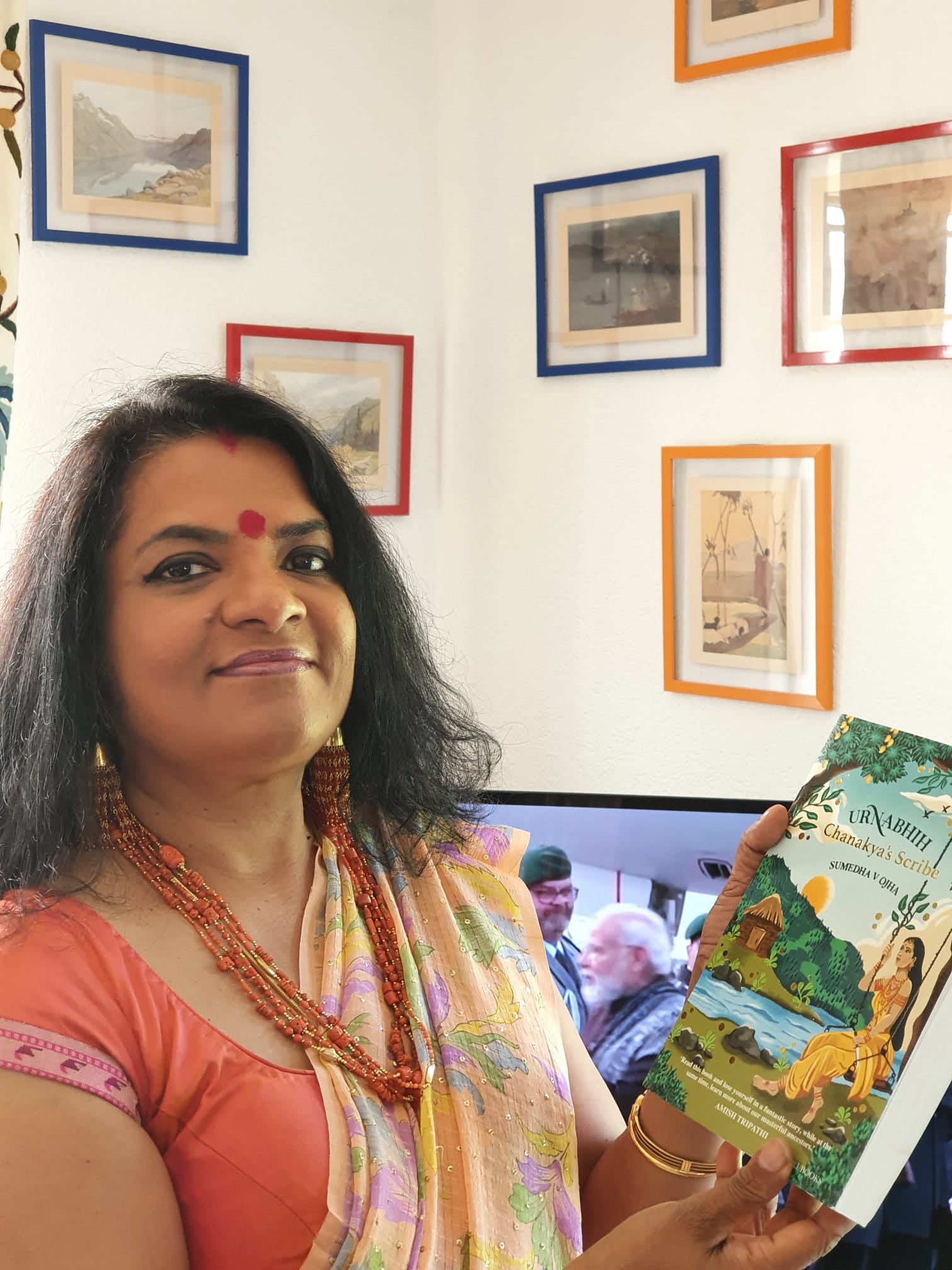
Sumedha Verma Ojha with her just released book Chanakya’s Scribe
To foreign shores
The first turning point in Sumedha’s career came when she moved to Geneva with her bureaucrat husband 14 years ago for his job at the UN. Sumedha set out on what was intended to be a sabbatical and ended up writing her first book. “During that time, I researched and wrote Urnabhih,” she says. “As I immersed myself in Sanskrit scriptures, I realised that bringing alive the past and studying the scriptures in their original form give me deep satisfaction. I resigned from the civil services and took to learning Sanskrit seriously, so I could read everything in its original form.”
What followed were frequent lectures in Los Angeles, Chicago and New York. Her Ramayana lectures made such an impact at the Los Angeles Public Library that they appointed her as the library’s single-point of contact for South Asian outreach. She was also pleasantly surprised to find that while her interpretations of the Ramayana were popular with the Indian diaspora, Americans were drawn to them as well. “They outnumbered the Indians,” smiles the alumnus of Lady Shri Ram College and Delhi School of Economics.
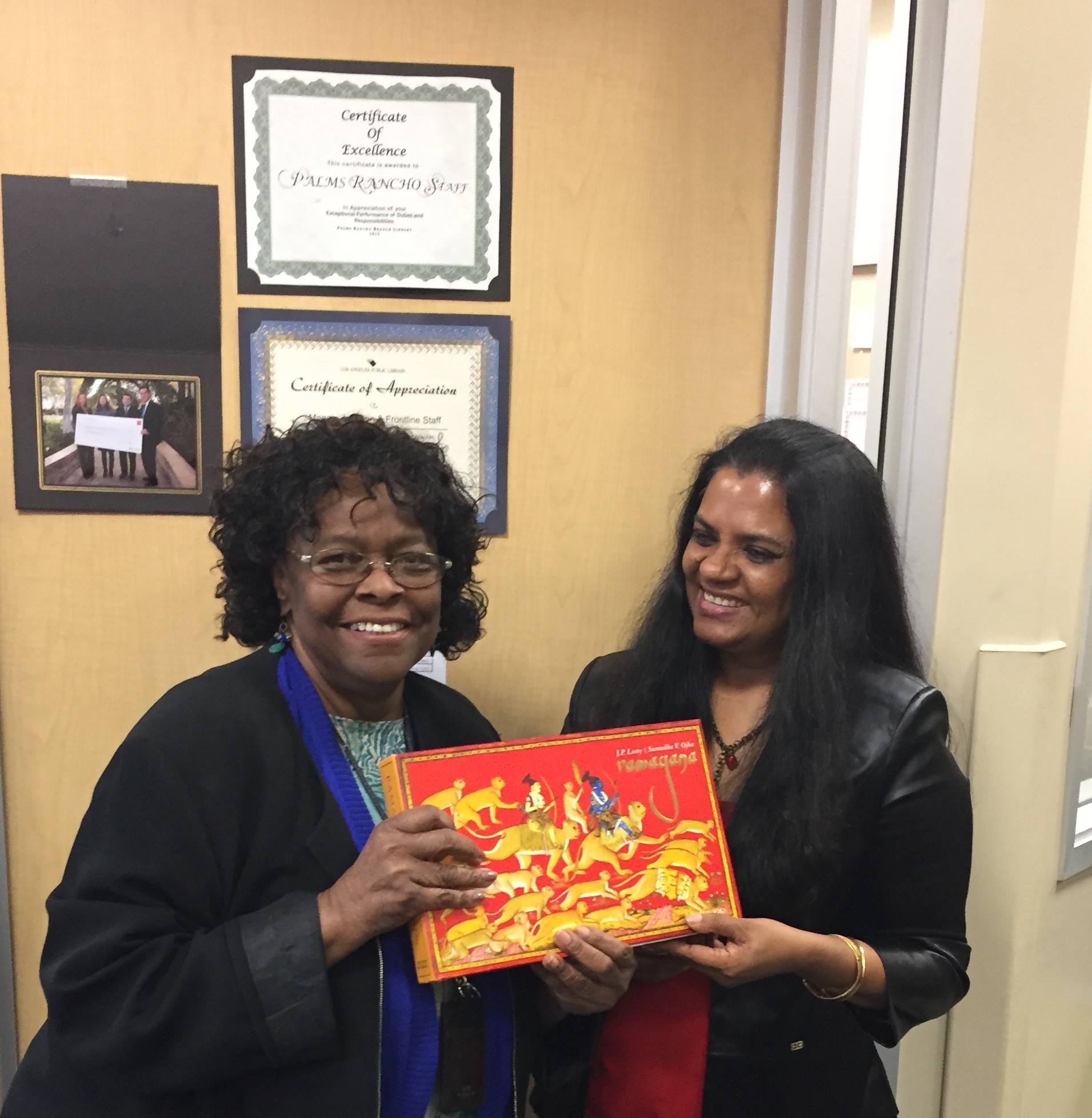
Sumedha with librarian of the Los Angeles Public Library
Spreading indigenous Indian knowledge
The passion to spread knowledge brings her to MIT School of Vedic Sciences in Pune as a visiting faculty, where she takes classes online. “It’s an experimental boutique college that combines the western system of academia with indigenous Indian knowledge systems. She has been at the helm of this experimental teaching and has even prepared the syllabus of the various programmes including the master’s programme in Vedic sciences that are in the offering.
Sumedha is also a council member at the international organization, Indica Today, which is a platform for revival of Shastraas (sacred book of treatise), Indic knowledge systems and Indology, taking care of the women’s studies vertical. Last month, one of its conferences brought her to Guwahati. The conference was a resounding success with 40 scholars from different parts of the world there. “We feel that there is too much of a Western gaze on academics. It’s time we brought our own perspectives to it as well,” Sumedha remarks, saying she has always been drawn to history and its significance in modern living.
Love for history and ancient India honed at home
Her earliest influence was her mother, whom Sumedha describes as a “very well-read and learned person.” This ensured she had “a great entry into history: Puranas (ancient Sanskrit writings), Vedas (earliest body of Indian scriptures), Upanishads (religious teachings of Hinduism) and ancient India through her,” says Sumedha. She recalls being introduced to the Arthashastra as a student in class eight. Her fascination, she says, has remained intact. “I always rely on primary sources for my studies,” Sumedha explains. “I read either the text or the archaeological inscriptions, study the coins, or visit the monuments and ruins that are still standing. I take a 360-degree view of the past and learn about the history, culture, food, society, religion, as much as I can, all through primary evidence.” While the Mauryan dynasty remains her focus, her love of history is not confined to a single period.
Unconventional giving…
She admits it’s been an unconventional life, filled with choices that few would make. Not many Indians, for instance, would dream of giving up a job at the UN, let alone a post in the civil services. “I have a desire that drives me, though,” Sumedha smiles, adding, “I want to do away with Indians’ ignorance of their own past. I want to see a society that understands itself. If we don’t understand our past, we cannot understand ourselves. That is my passion and it always drives me.” Indians, Sumedha believes, have become used to seeing “through the eyes of colonial masters when instead they should look through our own knowledge systems and languages.”
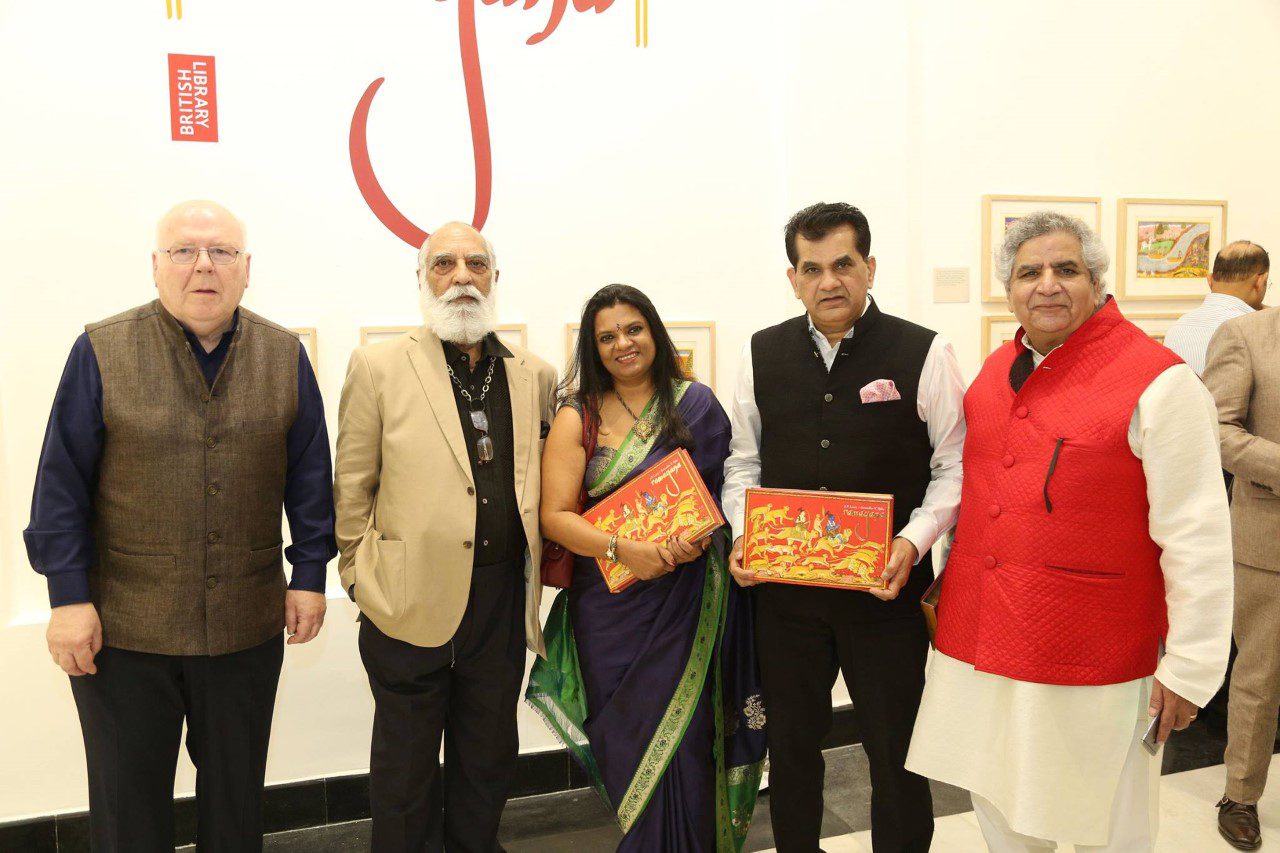
Sumedha at Ramayan Launch with Niti Aayog Chairman, Amitabh Kant, Maharana of Mewar Arvind Singh and Pramod Kapoor of Roli Books.
Digitization of Sanskrit manuscript a boon
By the time Sumedha discovered the depth of her love for Sanskrit – and Indian history – she was living abroad. Finding primary sources for research was a struggle. “I had friends sending me books,” she says. “Then came the great movement towards the digitization of Sanskrit manuscripts, which has been a boon to me. I can read them all anywhere.” She visits India often too – before the pandemic, it was as often as four times a year for research and other activities. “I consult libraries in India and buy lots of books there,” says the lifelong scholar, who grew up in serene Ranchi back when it was part of Bihar.
The past and the present
“Possibly, I live more in the past than in the present, and I want everyone else to know about it. That’s why I write books, give lectures and talks and make web series so that all Indians can learn more about their roots and through that, get a better understanding of the present,” Sumedha says.
Sumedha’s husband Alok Kumar Ojha is now the director of the World Meteorological Organisation, the weather arm of UN in Geneva. The couple met during training after Sumedha aced the civil services exam two decades ago. Their two children live in the US.
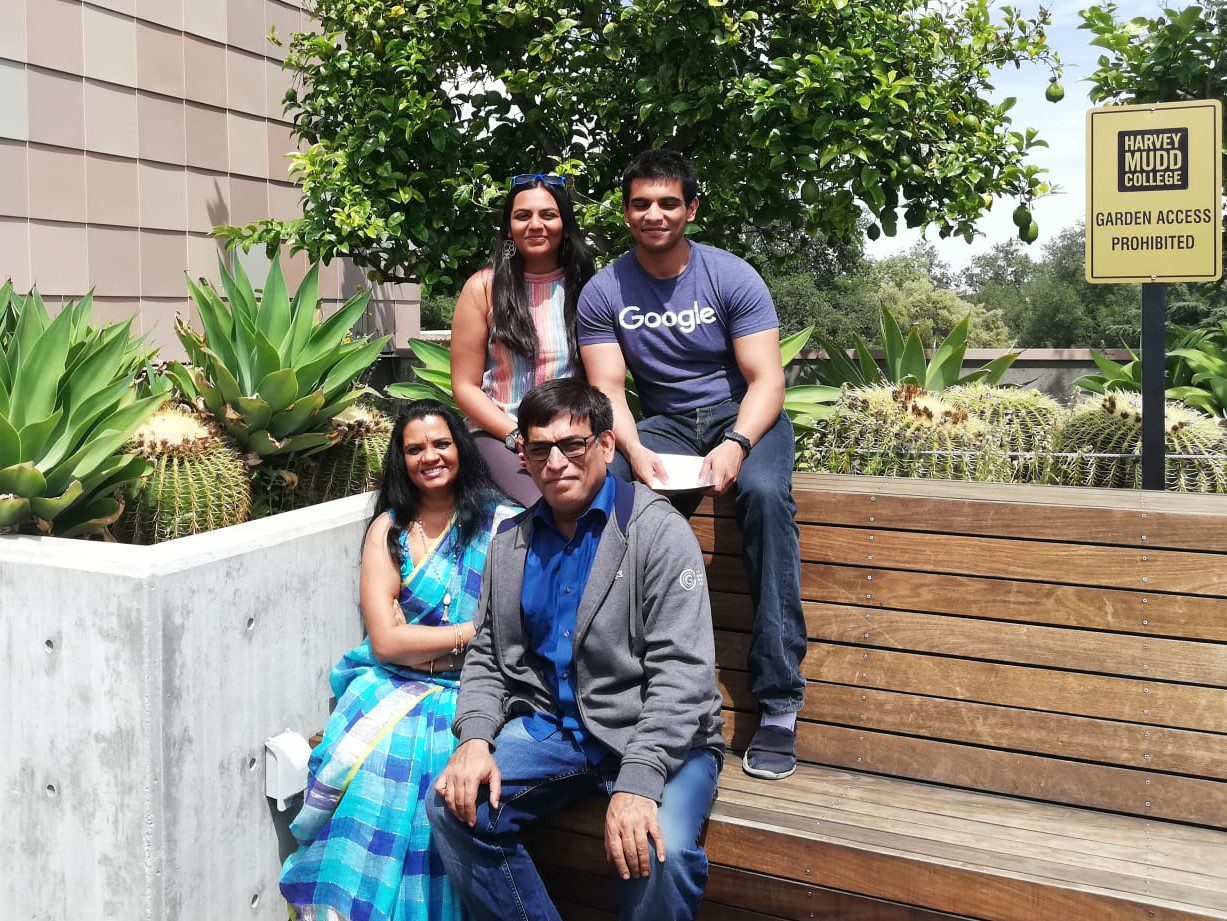
Sumedha Verma Ojha with her family
Apart from writing the third book in the Urnabhih series, she is in the midst of writing her fourth book which is based on the women of ancient India. “It will establish a new approach to understanding women, based on the epic shastrick and Indic traditions of the subcontinent,” she adds.
Primary (original) source of research of ancient India:
- Literary sources (Vedic, Sanskrit, Pali, Prakrit, and other literature)
- Archaeological sources (epigraphic, numismatic, and other architectural remains)
- Letters, manuscripts etc.

